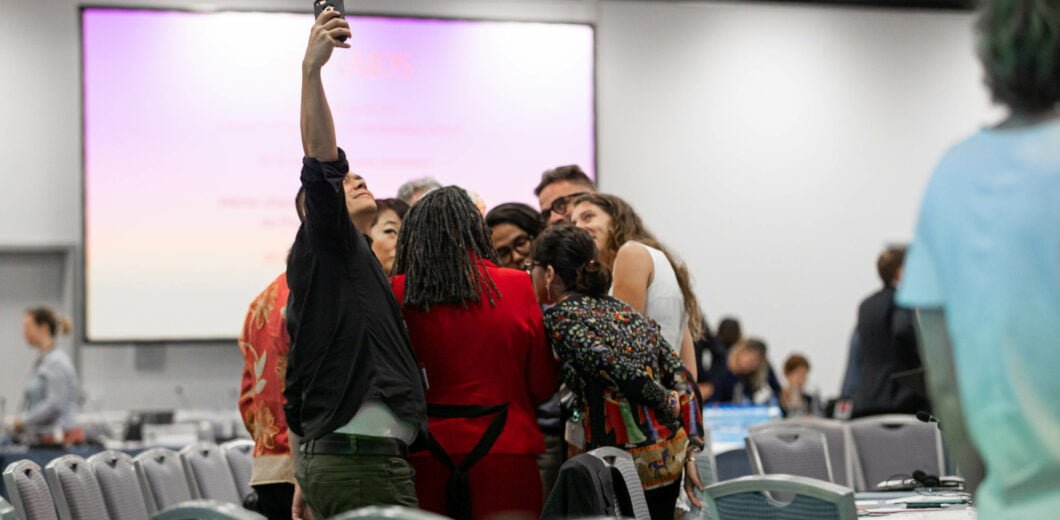The NGO Delegation’s Communique for the 44th UNAIDS PCB Meeting is already out. The Communique contains the following sections: Report of the Executive Director; Report of the Chair of the Committee of Cosponsoring Organisations; Report of the PCB working group to strengthen monitoring and evaluation role on zero tolerance against harassment, including sexual harassment, bullying and abuse of power at the UNAIDS secretariat; Update on strategic human resources issues; Unified Budget, Results, and Accountability Framework (UBRAF); Nomination of the next Executive Director of UNAIDS; Thematic Segment.
Introduction
Jules Kim, Asia and the Pacific Delegate
With the shadow of the challenging 43rd Programme Coordinating Board (PCB) meeting in December 2018 fresh in our minds, there were significant concerns about what we could expect at the 44th PCB, which took place on June 25-27, 2019, in Geneva, Switzerland. Chaired by Mr. Xia Gang,Deputy Director-General of the National Health Commission of China,the 44th PCB was held at Starling Hotel and not at our usual venue, the WHO Executive Boardroom. A heatwave across western Europe meant we were anticipating scorchingly hot temperatures for the whole PCB week – an apt backdrop for the heated discussions expected throughout the PCB.
The June PCB has traditionally been the ‘housekeeping’ meeting for the administrative and governance aspects of the Joint Programme. But this was also the PCB where the selection of the new Executive Director would be discussed, as well as the Management Action Plan and Report of the Working Group of the Programme Coordinating Board (PCB) to strengthen the PCB’s monitoring and evaluation role on zero tolerance against harassment, including sexual harassment, bullying and abuse of power at the UNAIDS Secretariat.
The agenda for the first two days was planned to run from 9 am to 9 pm with a third full day for the Thematic Segment on Delivering on SDG3: Strengthening and Integrating Comprehensive HIV Responses into Sustainable Health Systems for Universal Health Coverage.
Surprisingly, each day ended ahead of schedule, a likely result of China’s chairing, which included traffic lights to remind PCB members and observers when to wrap up and end their interventions. A clear set of decision points were agreed upon on the floor of the PCB often ahead of the time allotted in the agenda.
The NGO Delegation held numerous side meetings with civil society, cosponsors and member states to discuss issues of concern, hear and raise important perspectives and manage potential areas of conflict. Importantly, the regional and global civil society calls prior to the PCB and debrief sessions with CS observers throughout provided an important opportunity for us to maintain a community-centered perspective to the key issues being presented.
There was vocalisation of support for collective action to end AIDS as a public health threat by 2030 by all present at the meeting. There was firm support for the importance of maintaining a strong and independent UNAIDS. And there was a clear sense that delays could not be afforded and that we needed to move forward in the ‘housekeeping business’ to enable progress to meet these goals.
